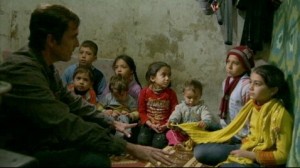 Lebanon’s General Health, Labor, and Social Affairs parliamentary committees warned following a meeting Thursday at parliament of the spreading of epidemics among Syrian refugees.
Lebanon’s General Health, Labor, and Social Affairs parliamentary committees warned following a meeting Thursday at parliament of the spreading of epidemics among Syrian refugees.
“There are cases of contagious diseases such as Tuberculosis, Leishmaniasis, Scabies, and Hepatitis. These cases can be controlled by the Health Ministry but not entirely due to the difficult circumstances for conducting studies,” the National News Agency quoted Health Committee Chief MP Atef Majdalani as saying following the meeting.
Majdalani explained: “These difficulties are caused by the random distribution of refugees in more than a thousand cities and towns.
“The Health Ministry has formed a committee tasked with following up with the health situation, especially contagious diseases.”
He also called for holding an Arab and international conference either in Lebanon or outside the country to look into this issue.
Majdalani stressed that “Lebanon is facing a big health, environmental, social, and security problem which [we] need help with in order to face all these dangers.”
The number of registered Syrian refugees in Lebanon has now reached an estimate of 450,000, and the inflow surpasses the capacity of the country by all means. Danish Refugee Council is working with local municipalities to identify additional shelter areas – and in arranging distributions of items such as mattresses and blankets for the newly arrived.
Recently some of the largest inflows of Syrian refugees have been seen in the northern part of Lebanon. In for instance Wadi Khaled, shelters and houses have reached their capacities, and with a larger influx of refugees expected in the coming weeks and months, it is getting harder and harder for the communities to cope with the high number of refugees. Even though many are living with relatives, and the Lebanese have been generous in welcoming the refugees, the increasing number in some of the poorest parts of Lebanon adds an unbearable pressure on the local communities.
“People are living more than 30 individuals in each house, and the current situation will not be sustainable past the first few weeks with these most recent additions. Further assistance, particularly with shelter and WASH is needed,” says Olivier Beucher, country director for DRC in Lebanon – speaking of the situation in Wadi Khaled.
Lebanon, a county of four million continues to host the largest population affected by the Syrian crisis.
Agencies

Leave a Reply
You must be logged in to post a comment.